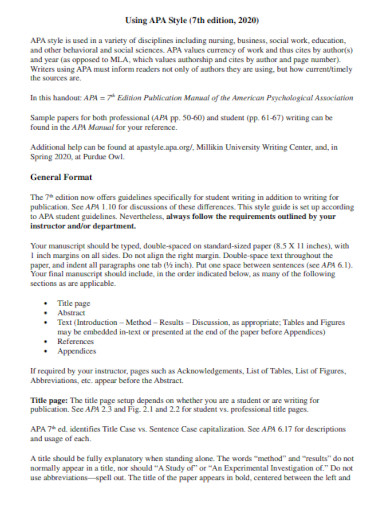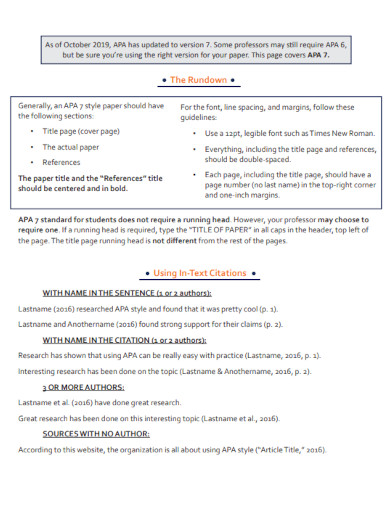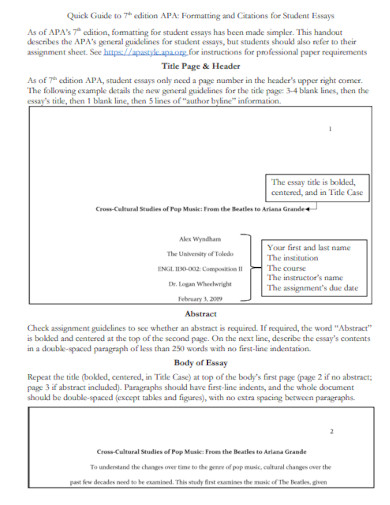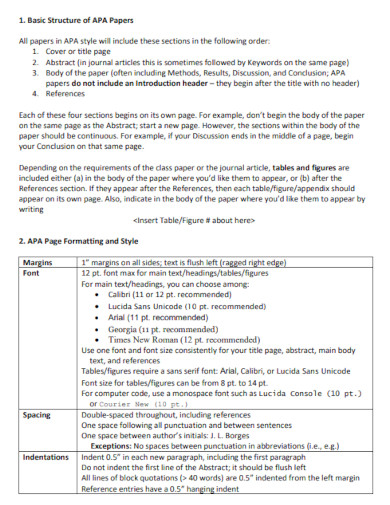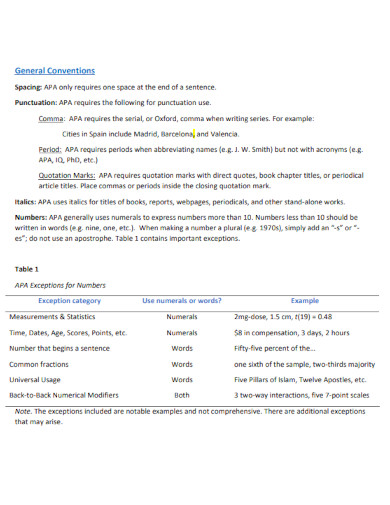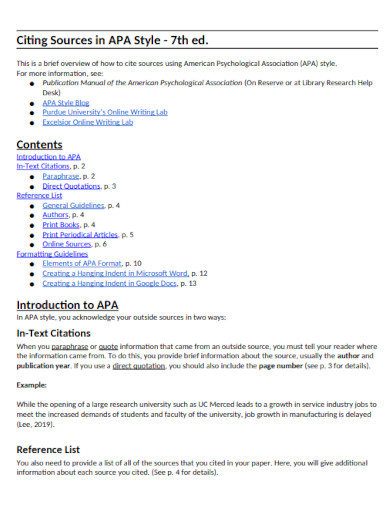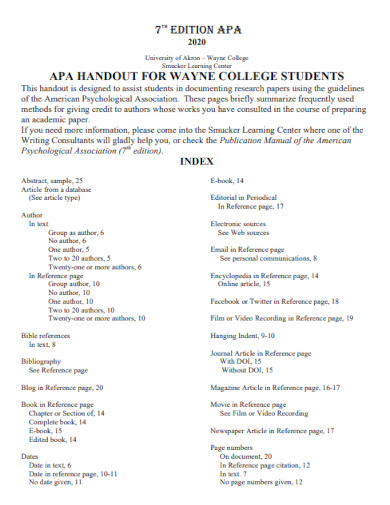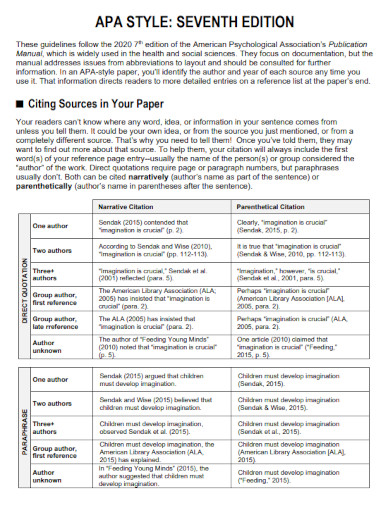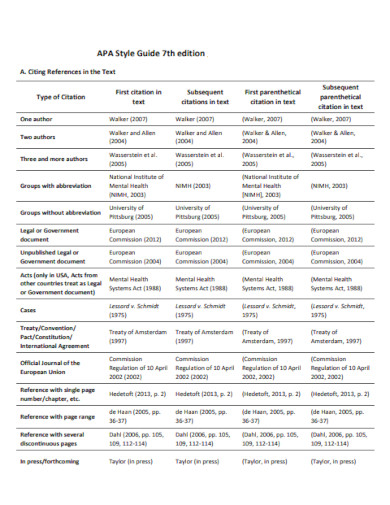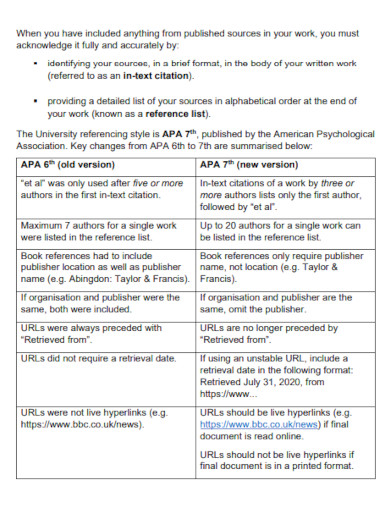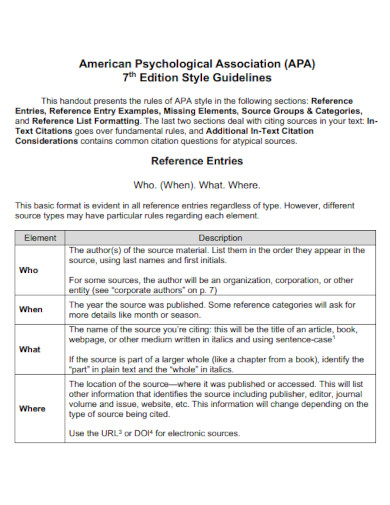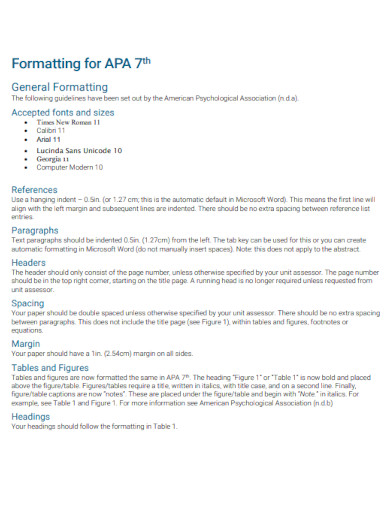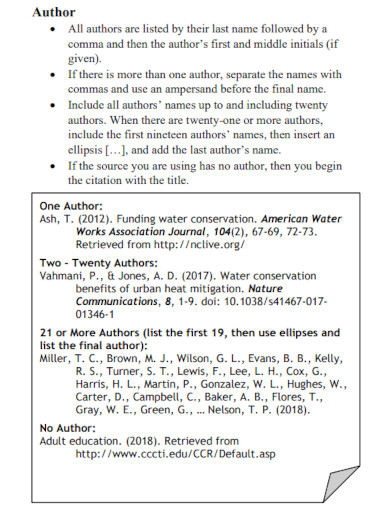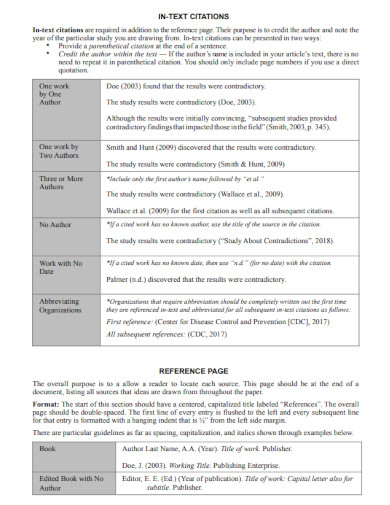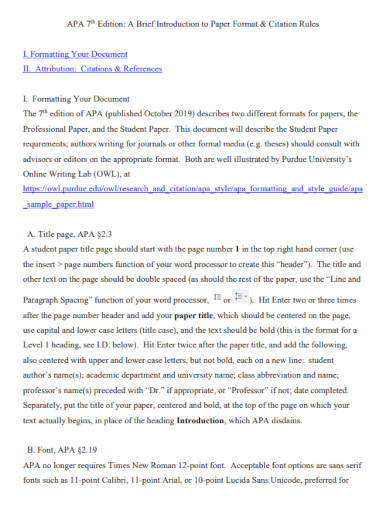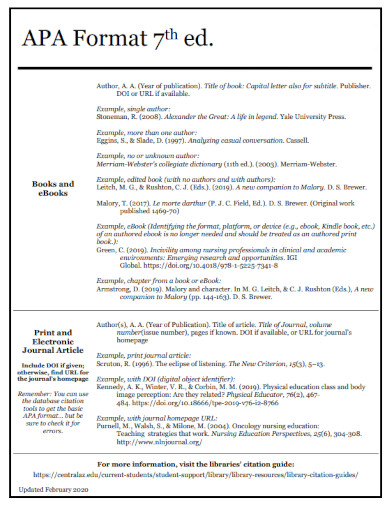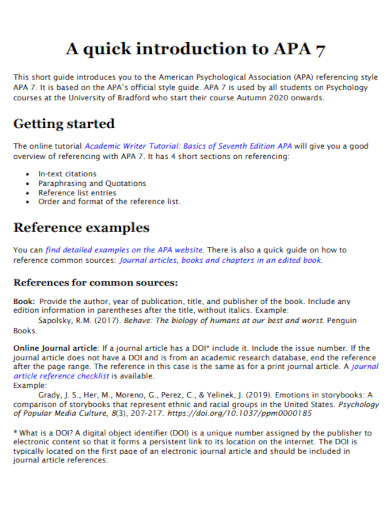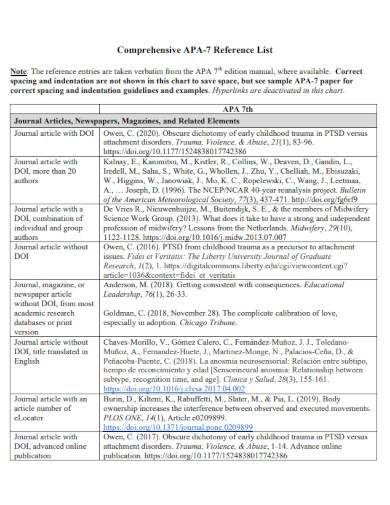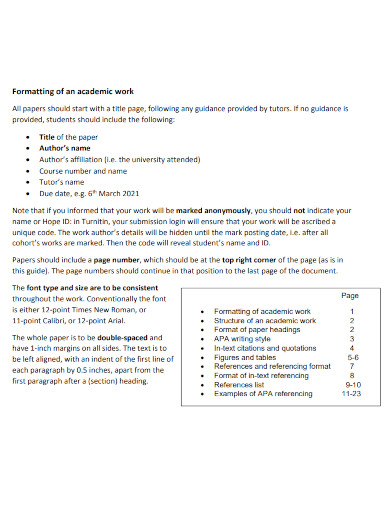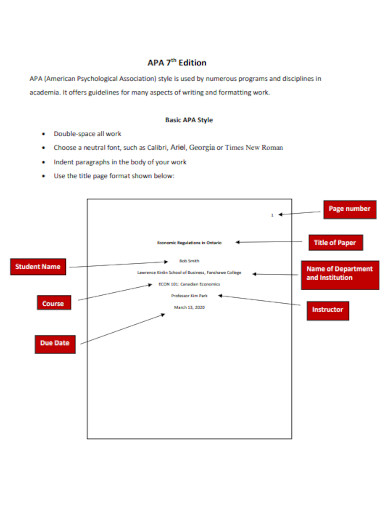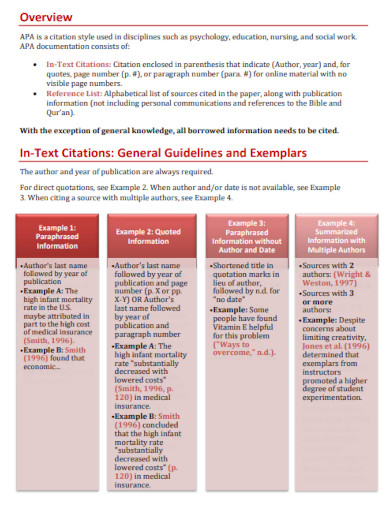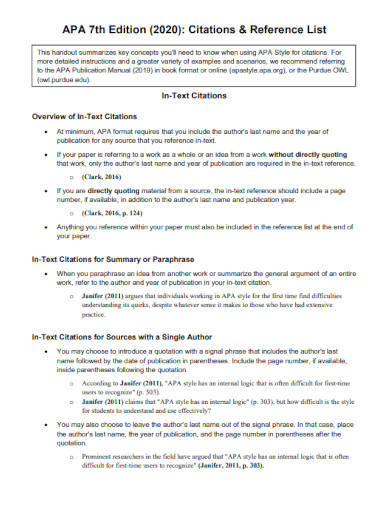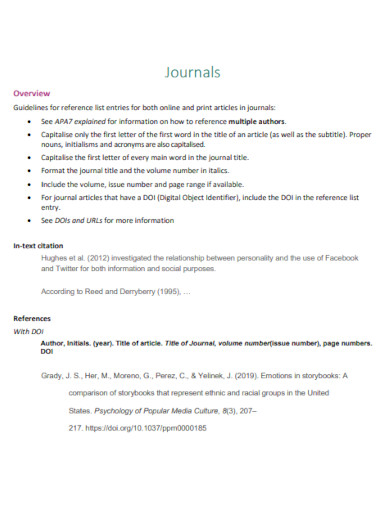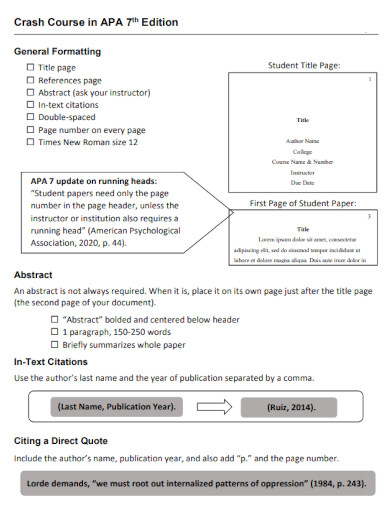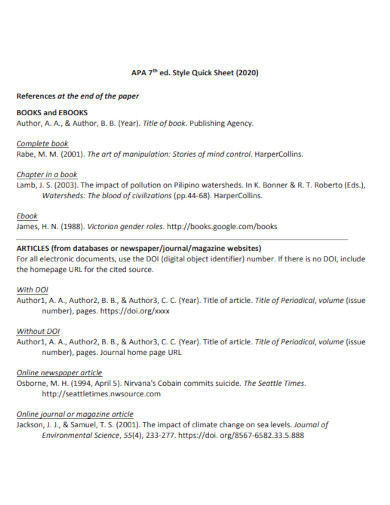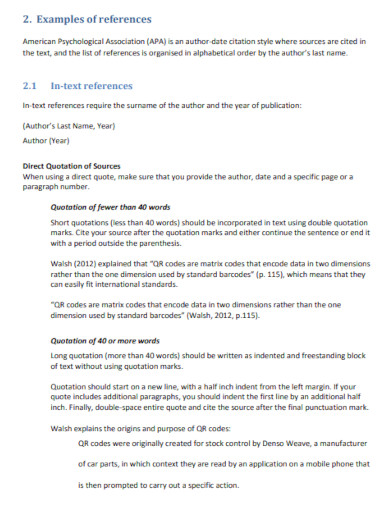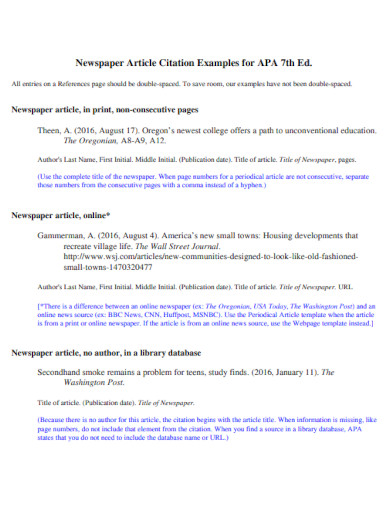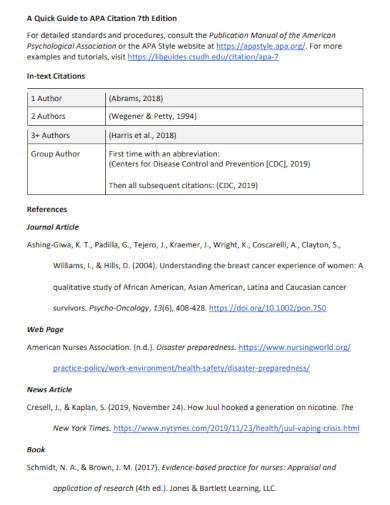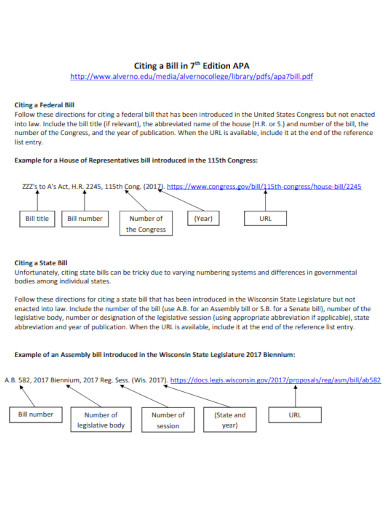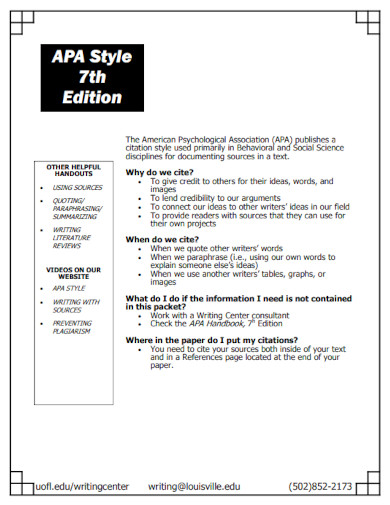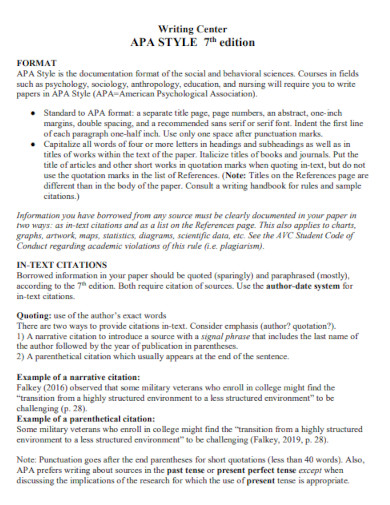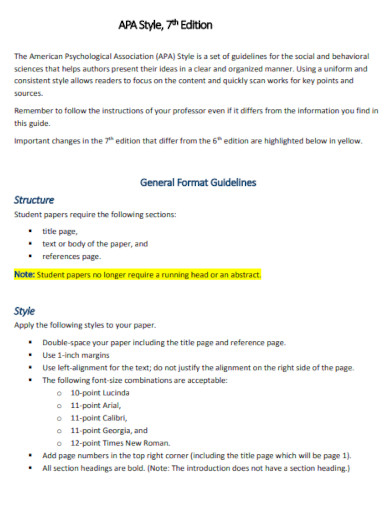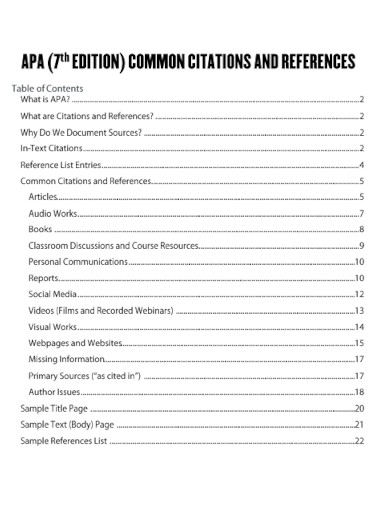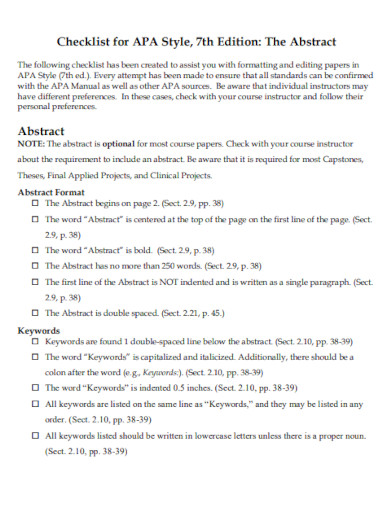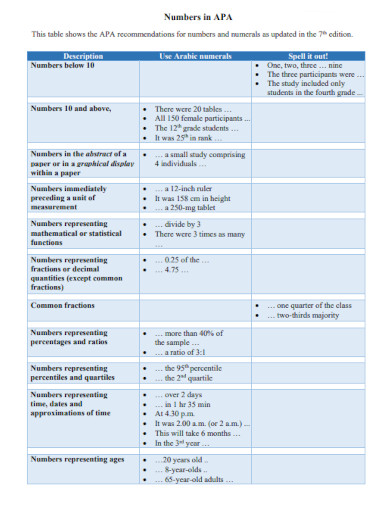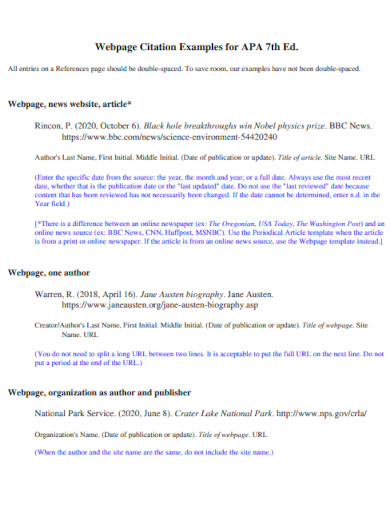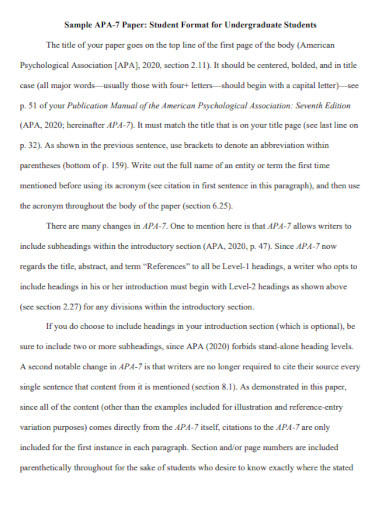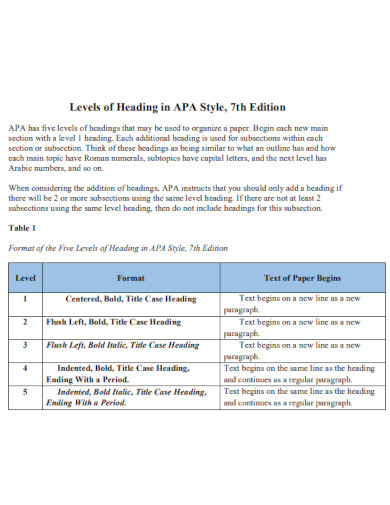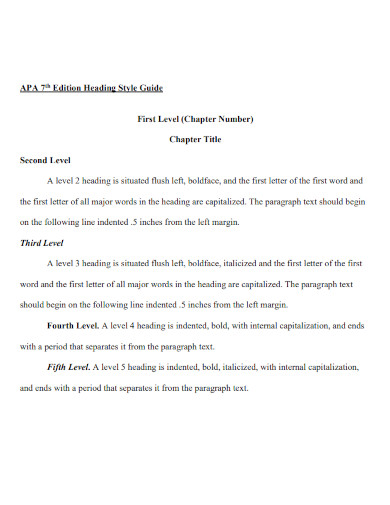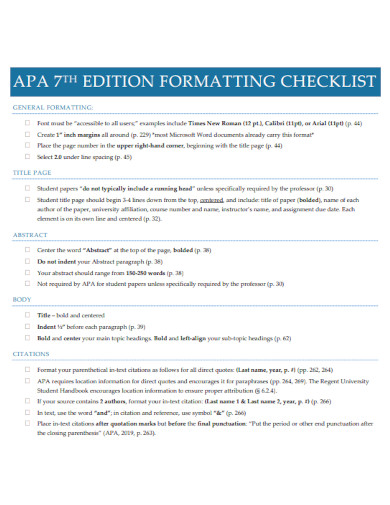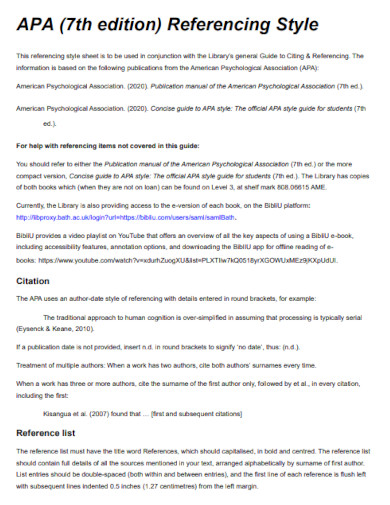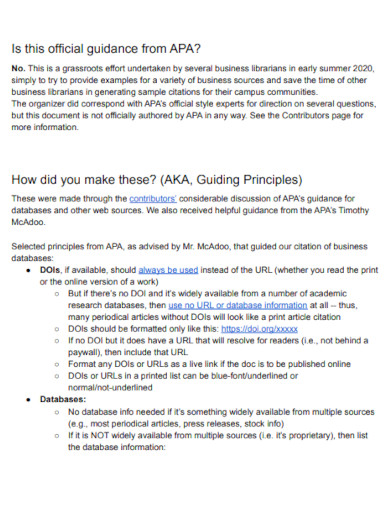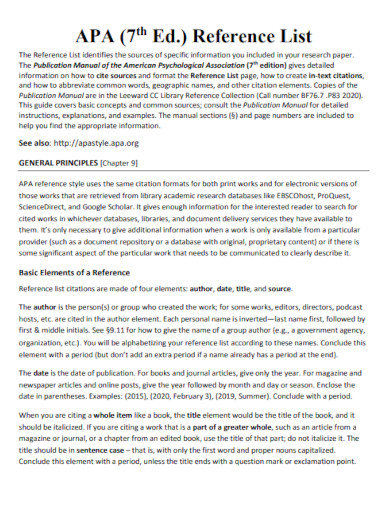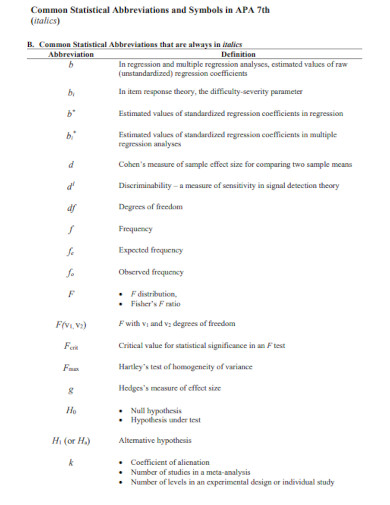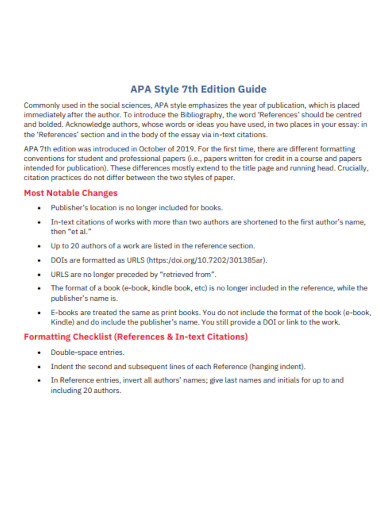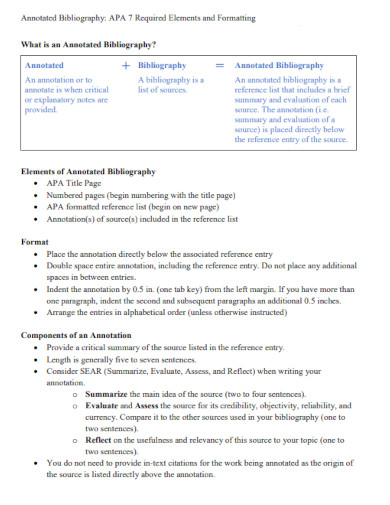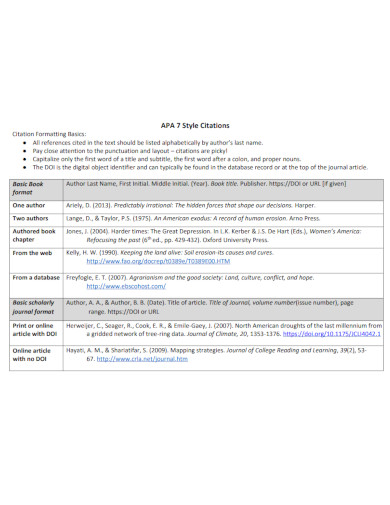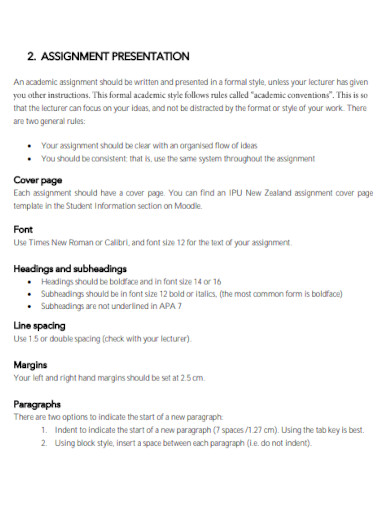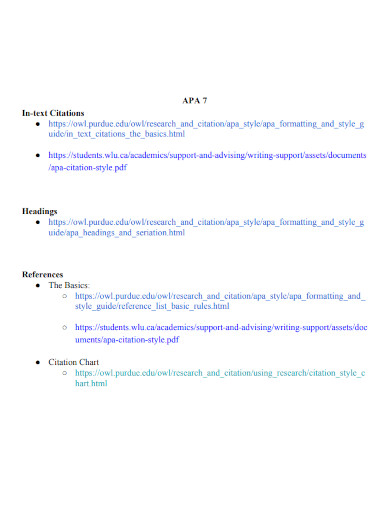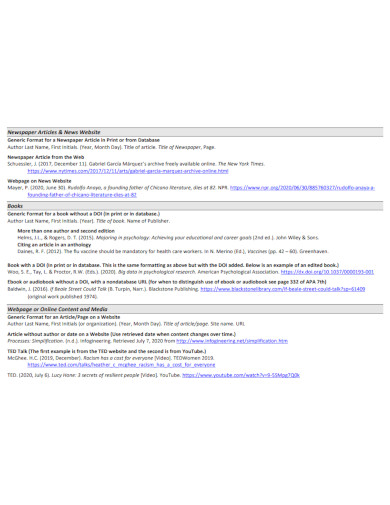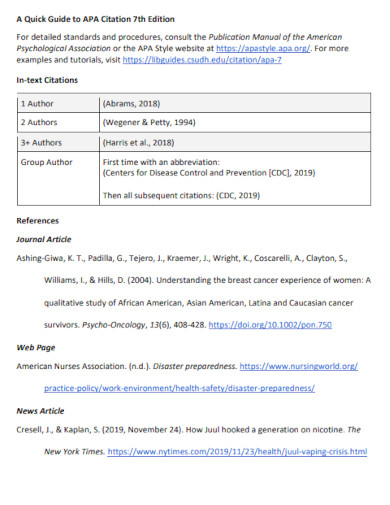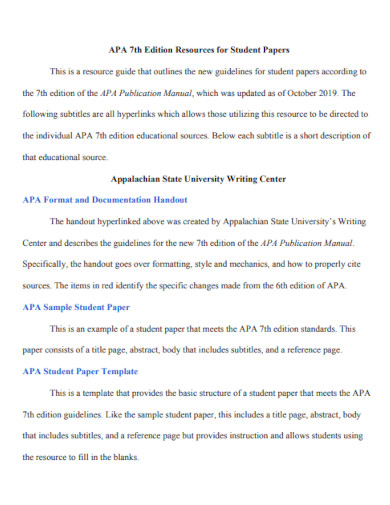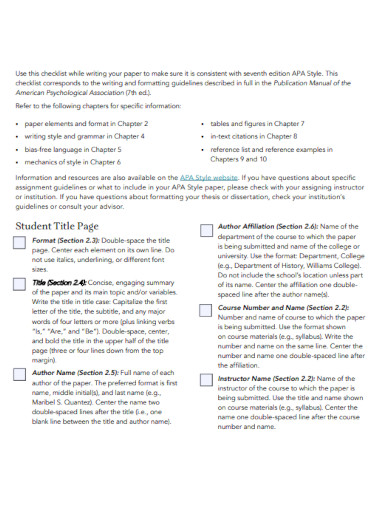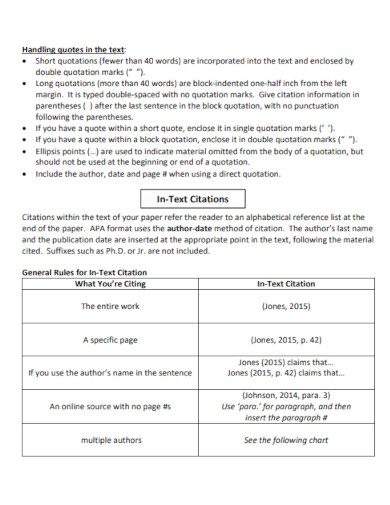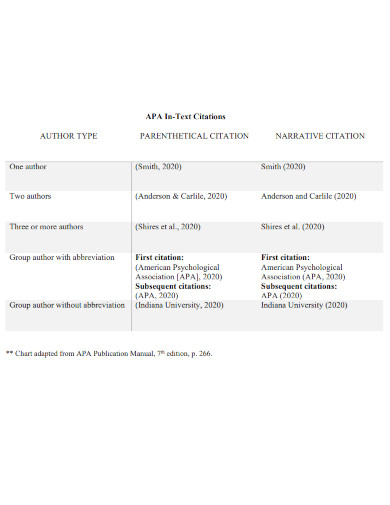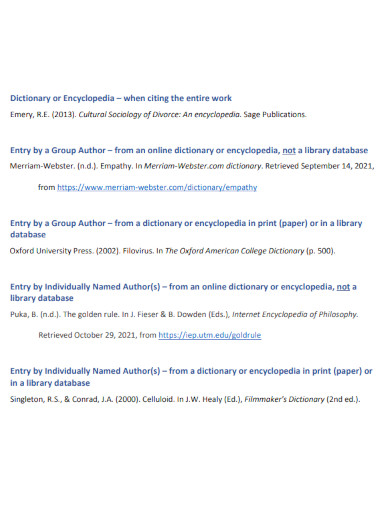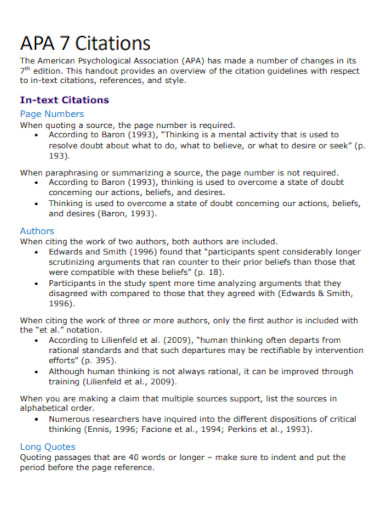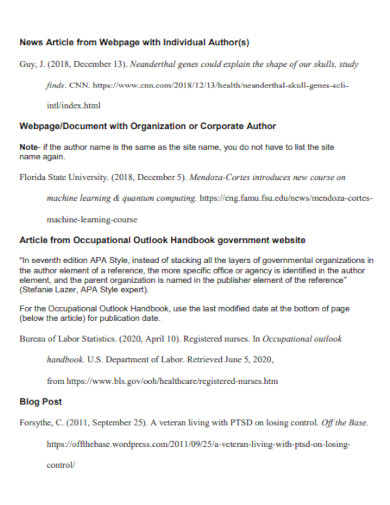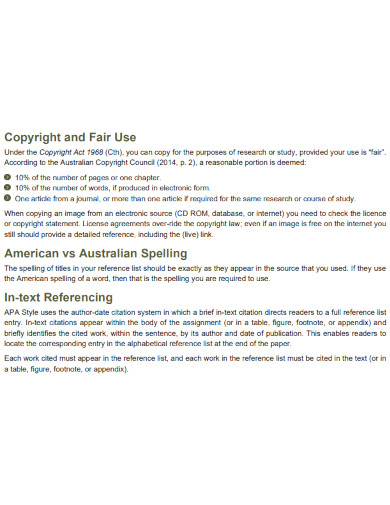50+ APA 7 Examples to Download
Cognitive biases, logical fallacies, and other psychological concepts and breakthroughs wouldn’t have been possible were it not for the extreme efforts of psychologists and researchers in their research, surveys, and case studies. These scholars must present and pass their quantitative or qualitative research articles using the most recent standard the APA has created. Leveraging APA templates ensures that these research documents are formatted consistently and meet all publication requirements.
1. APA 7 Format
2. Using APA 7
3. APA 7 Title Page & Header
4. APA 7 Reference
5. APA Style 7th Edition
6. Citing Sources in APA 7 Style
7. APA 7 for College Students
8. APA 7 Citing Sources in Paper
9. APA 7 Citing References in the Text
10 University APA 7th
11. APA 7 Reference Entries
12. General Formatting for APA 7th
13. APA 7 With Multiple Authors
14. APA 7 with Reference Page
15. APA 7 Paper Document Format
16. APA 7 Book and E-Books
17. Quick Introduction to APA 7
18. Comprehensive APA 7 Reference List
19. APA 7 for Academic Work
20. Basic APA 7 Format
21. APA 7 Sample
22. APA 7 Citations & Reference List
23. APA 7 Journals
24. Crash Course in APA 7th Edition
25. APA 7th Ed. Style Quick Sheet
26. APA 7 Referencing Style
27. Newspaper Article Citation for APA 7th Ed
28. APA 7 PDF
29. Citing a Bill in 7th Edition APA
30. APA 7 Paper
31. APA 7 Writing Format
32. APA 7 Manual
33. APA 7 Table of Contents
34. APA 7 Abstract
35. APA 7 Table
36. APA 7 Webpage Citation
37. APA 7 Research Paper
38. APA 7 Header
39. APA 7th Edition Heading Style
40. APA 7th Formatting Checklist
41. APA 7 Example
42. APA 7th Edition Citation for Business
43. APA 7 Reference List
44. APA 7 Symbols
45. APA 7 Student Paper Format
47. Annotated Bibliography APA 7
48. APA 7 Book Citation
49. APA 7 Cover Page
50. APA 7 Citation Page
51. APA 7 Website
52. APA 7 Textbook Citation
53. APA 7th Edition Resources
54. APA 7 Publication Manual
55. APA 7 with No Author Handout
56. APA 7 Narrative Citation
57. APA 7 Dictionary Citation
58. APA 7 Example Citation
59. Citation Machine APA 7
60. APA 7 Referencing
What Is the APA 7th Format?
The APA 7th edition format is the most recent variation of the APA format. This new format expands the reference list or page of the research and allows researchers to be more flexible with their sources.
How to Write in the APA 7th Format
When a researcher or scientist wants to publish their scientific article they will need to abide by the current format set by the presiding association. This means if the person has a topic that is aligned with psychology or anthropology they will need to write in the most recent variation of the APA format.
Step 1: Search Online for the Basic APA Format Details
Begin by searching online for the basic APA format details. This should include the basic margin of each page, the title page format, the font size and style, spacing, and citations.
Step 2: Create An Outline of Your Research Paper
Create an outline of the contents of your research paper or article. This should be properly arranged with the correct amount of information each paragraph or sentence will hold. The outline will provide you with a structure you can use to organize and create your research paper.
Step 3: Brush Up on How to Create APA In-Text Citations
Be sure to brush up or refresh yourself on the overall format of APA in-text citations, as these will be very pivotal in the acceptance of your research paper or article. Be sure to learn the most recent format or variation of the APA in-text citation.
Step 4: Learn How to Format the APA Reference Page
The most recent variation of the APA 7th edition format has a different format for its APA reference page. Be sure to learn the nuances and format of the current variation of the APA reference page.
FAQs
What are the biggest differences between the APA 6th format and the APA 7th format?
The American Psychological Association often significantly changes the format, outline, or outline format of their research papers. The APA 7th edition format allows researchers and scholars to have a larger reference list for their APA in-text citations and citations. One can find one of the major differences between the Apa 7th edition format in the number of authors the person can reference, the omission of publisher location, and the inclusion of social media examples. This is very important as Psychology often deals with current trends, biases, culture, and thinking,
How often does the American Psychological Association change its format?
The American Psychological Association changes or updates its format to better fit the current trends, expectations, and standards of modern psychology and sciences. The most recent change of the format happened in the year 2019, while the 6th edition change occurred in 2009. This means that the APA does not change its format until the current one will no longer serve modern research and topics.
Can I use the APA 6th edition format for my research paper?
No, you cannot use the APA 6th edition format on your research paper as the American Psychological Association phased out this format. The APA 6th edition format is only valid until 2021 when it will be replaced by the APA 7th edition format moving forward.
The APA format constantly changes from one edition to the next, like the scientific method. This constant change means that the modern format can accommodate current-day issues and topics scientists and researchers will try and research. If the scholar does not follow APA’s format, then their scientific article is rejected by the board.



